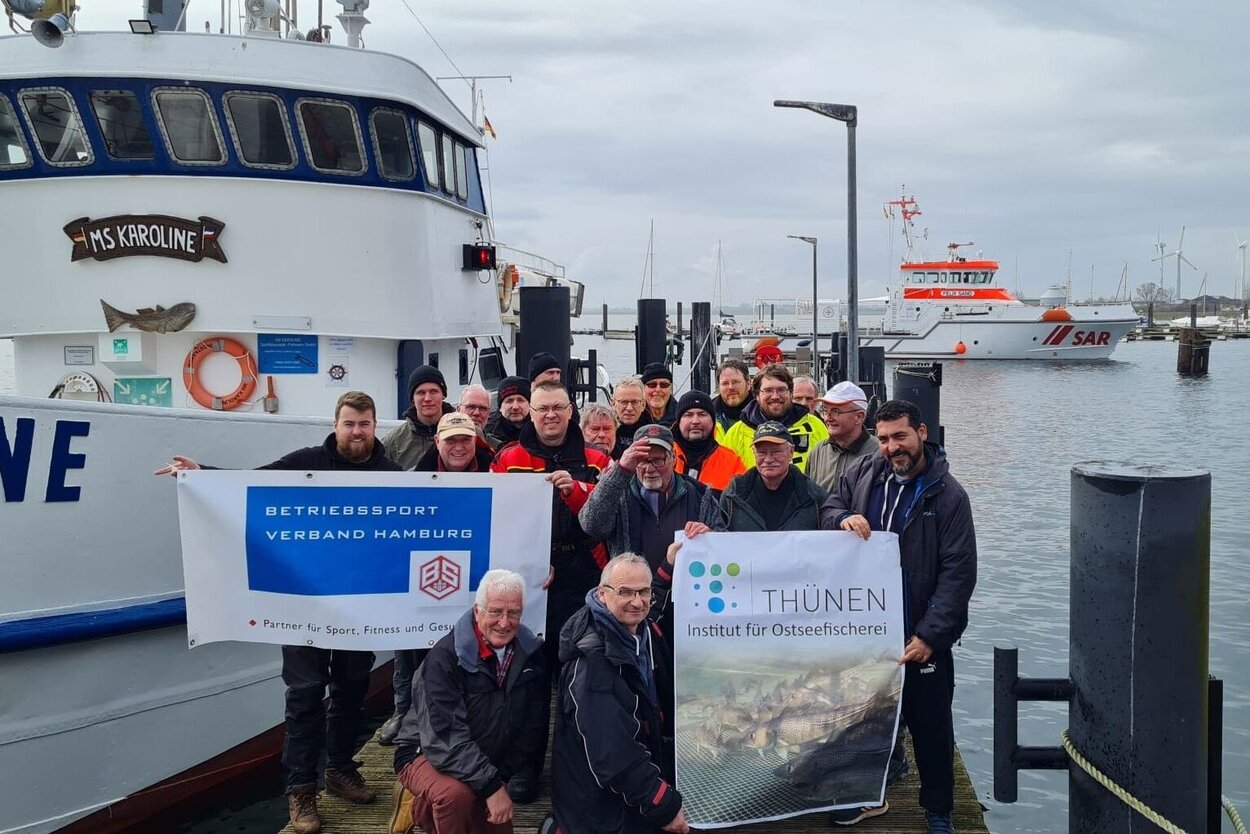The background of the study is that flatfish are becoming increasingly important as a target species for anglers in the North Sea and Baltic Sea - also as an alternative to cod. However, every fourth flatfish is released, for example because it is too small. The project will for the first time investigate how different factors influence the survival chances of flatfish during the release process, e.g. the size of the hook or the position of the hook in the fish's mouth. In addition, the effects of different hook sizes on fish length, hook position, and catch rates will be investigated.
For the study, the researchers are combining a field experiment with a citizen science study. In the recently launched field experiment, about 20 volunteer anglers regularly help to catch flatfish from a charter vessel under realistic conditions. The fish are then kept in net cages in the Baltic Sea for up to a week to study survival rates. In the citizen science study, about 200 volunteer anglers from all over Germany will fish for flatfish with standardized rigs and hooks until the end of the year and document various information about their catches (fish length, hook position, hook size, etc.) in a personal angling diary.
In the end, the results of this study should help anglers to become more selective in fishing for flatfish through their choice of hooks and increase the chances of survival when releasing flatfish.
This study is supported by funds from the Schleswig-Holstein fisheries levy.
Contact: Dr. Simon Weltersbach

![[Translate to English:] [Translate to English:]](/media/_processed_/d/7/csm_Startseite-OF_03_c0dfd6e750.png)
![[Translate to English:] [Translate to English:]](/media/_processed_/a/3/csm_20181116-151457-Stella-Jerome-Fischfalle-Warnem%C3%BCnde-Dorsche-im-Netzk%C3%A4fig-5691_heller_3050c72fa2.png)






